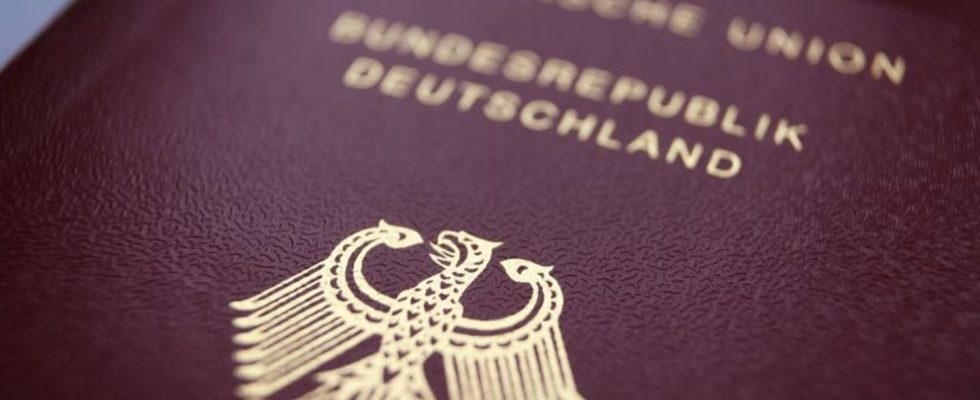citizenship law
Faster to the German passport?
Last year, around 168,500 people applied for German citizenship – and according to the Ministry of the Interior, just 3.1 percent of foreigners who have lived here for at least ten years. photo
© Karl-Josef Hildenbrand/dpa
Many foreigners live in Germany for a long time, but do not apply for a German passport. Now Interior Minister Faeser wants to make it easier – also as an incentive for better integration.
If you are well integrated in this country, you should get your German passport faster. Such a reform of The Federal Cabinet intends to decide on citizenship law on Wednesday. The draft by Interior Minister Nancy Faeser (SPD), which is available to the German Press Agency, not only lowers the requirements for naturalization, but also allows multiple nationalities. The opposition Union fears that the law could exacerbate “integration problems” in Germany and send “wrong signals”.
Faeser, on the other hand, argues in her draft law that new rules for naturalization also create incentives to gain a better foothold in Germany and to settle into the community. In principle, migrants should be able to get a German passport more quickly – but with conditions for economic and democratic integration.
According to figures from the Ministry of the Interior, around 14 percent of people in Germany do not currently have a German passport, a little over twelve million. Among them are around 5.3 million who have been living here for at least ten years, have long been an integral part of society, but are not able to participate democratically on an equal footing.
Naturalization after five years
According to Faeser’s ideas, migrants should be able to become citizens after five years in Germany. Previously, they had to live in the country for eight years. With good performance at school or job, good language skills or volunteer work, naturalization should be possible after three years.
Prerequisite: Economic and democratic integration
If you want to be naturalized in Germany, you have to commit to the values of a free society. The German passport is therefore expressly excluded for people who have committed crimes for anti-Semitic or racist motives. A prerequisite should also be that you can generally earn a living for yourself and your family without social benefits. There should be exceptions for guest workers from the 1970s and families with underage children in which one parent works full-time.
Multiple nationalities are allowed
If you want to have a German passport, you no longer have to give up your old one. So-called multiple citizenship is permitted if proof of integration and knowledge of German is provided. The draft law argues that many foreigners feel they belong to Germany, but at the same time also feel connected to their country of origin. They are currently not naturalizing in Germany because they would then have to give up their other passport. Ultimately, however, language skills, participation and a commitment to democratic values are more important for integration than a second passport.
Last year, around 168,500 people applied for German citizenship – and according to the Ministry of the Interior, just 3.1 percent of foreigners who have lived here for at least ten years.
Children should become Germans faster
All children of foreign parents born in Germany should be given a German passport if at least one parent has lived legally in Germany for more than five years. So far, the period has been eight years. The children should also be allowed to keep the nationality of their parents.
Relief for the guest worker generation
There should be simpler rules for people who came to Germany as guest workers up to the 1970s or to the GDR as contract workers up to 1990. Faeser argues that in the past they have only received a few offers for integration. The federal government therefore wants to do without written German tests and a naturalization test. They only have to prove that they can communicate in German in everyday life without any significant problems.
Public naturalization ceremonies
In the future, naturalization certificates should generally be handed over publicly. If possible, this should be done “in a solemn form and using the national symbols”, according to the draft.
Opposition sees great risks
The Union in the Bundestag considers the reform a big mistake. “The law sends the wrong signals at a time when the integration problems in our country are getting bigger and illegal migration is getting completely out of hand,” said domestic politician Alexander Throm (CDU) of the German Press Agency. Real integration takes time – so there is an increasing risk that people will be naturalized who have not settled sufficiently into society.
With the decision in the cabinet, the law is not yet in force. It is then forwarded to the Bundestag, which votes on it after several rounds of debate.

